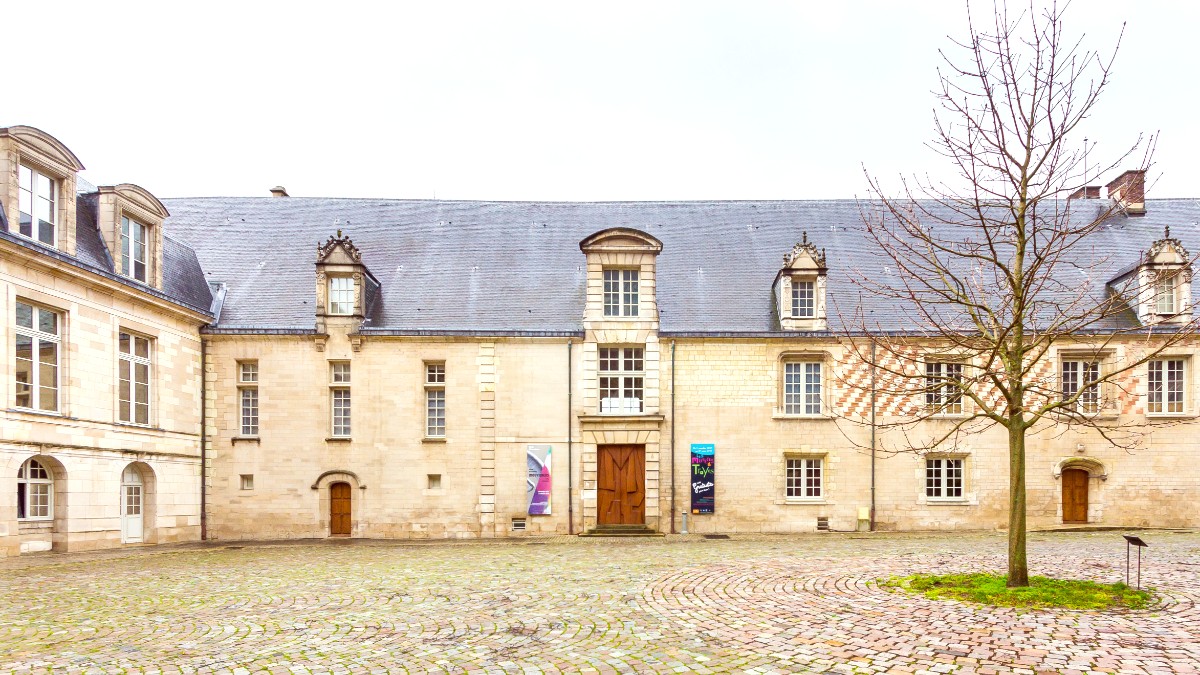
Champagne, France
Troyes experiences a temperate climate with four distinct seasons. Each brings its own weather conditions.
Spring (April-May): Mild temperatures (10-20°C / 50-68°F), moderate rainfall. Days lengthen, and the countryside greens.
Summer (June-August): Warm and often sunny (20-28°C / 68-82°F). Occasional thunderstorms, noticeable humidity. Longest daylight.
Autumn (September-October): Mild to cool (10-20°C / 50-68°F). Decreased rainfall, crisp air.
Winter (November-March): Cold (0-10°C / 32-50°F). Frost is common, occasional snow. Higher precipitation, short daylight.
Troyes does not experience monsoons or hurricanes. Summer heatwaves can happen, with temperatures sometimes exceeding 30°C (86°F). During these times, staying hydrated and wearing light clothing is useful. Carry a Reusable water bottle. Winters bring freezing temperatures, making warm layering and appropriate footwear important.
The region experiences occasional summer heatwaves, which are the most remarkable weather hazard. There is a risk of minor localized flooding along the Seine River during exceptionally heavy rainfall, but the city center has protections.
Temperatures exceed 30°C (86°F).
Stay hydrated, wear light clothing, seek shade during midday sun. A reusable water bottle is useful.
Dehydration, heatstroke.
Shoulder seasons can be less predictable.
Pack layers and a waterproof outer layer.
Unexpected rain, cooler temperatures.
Freezing temperatures, occasional snow.
Wear warm layers and appropriate footwear.
Discomfort, potential icy conditions.
France, a Schengen Area member, uses common visa policy for short stays. A short-stay (Schengen) visa allows tourism, business, or family visits up to 90 days within any 180-day period. Many nationalities (e.g., US, Canada, Australia, UK, New Zealand) are visa-exempt for short stays. For visits beyond 90 days, or for work/study, a specific French national visa is useful. Apply for this at a French embassy or consulate in your country before travel.
For a Schengen visa, the application typically involves submitting a form, supporting documents, and biometric data to the French embassy, consulate, or designated visa application center. Start this process well in advance.
Your passport must be valid for at least three months beyond your intended Schengen Area departure date, issued within the last 10 years, and contain at least two blank pages.
Present proof of a valid visa if your nationality requires one.
You may demonstrate financial means to cover your stay (bank statements, credit cards, sponsor letter).
Ready evidence of hotel bookings or an invitation letter.
Mandatory for Schengen visa applicants (€30,000 medical coverage). World Nomads, SafetyWing, or Insubuy are options.
Costs vary significantly based on your travel style.
The official currency in Troyes and throughout France is the Euro (€). ATMs are widely available. Major credit and debit cards (Visa, MasterCard) are broadly accepted. Some smaller businesses may accept only cash. Inform your bank of travel plans. Currency exchange offices are less common outside major cities; use ATMs for cash withdrawals.
Tipping is not obligatory in France. Service charge is usually included, indicated by "service compris." A small tip for good service is customary, especially if you appreciated the experience.
Prices vary based on type of meal and attraction.
France has high standards for public health and safety.
No specific vaccinations are required for entry to France from most countries. Routine vaccinations should be up-to-date (MMR, DTP, polio). Consult a healthcare professional 4-6 weeks before your trip for personalized advice.
Travelers' diarrhea risk is low due to high food hygiene. Practice good hand hygiene. Summer brings strong sun, use Sunscreen (SPF 30+), a hat, and seek shade during peak hours. Summer heatwaves can exceed 30°C (86°F), stay hydrated, avoid strenuous midday activity, wear light clothing. A reusable water bottle is useful.
Tap water in Troyes and throughout France is safe to drink unless explicitly stated (e.g., "eau non potable"). You can refill your reusable water bottle from taps.
Tap water is safe for consumption.
No need for purification (unless explicitly marked non-potable).
France maintains high standards of food hygiene in restaurants, markets, and shops. Eating at reputable establishments is recommended.
Food poisoning is uncommon for travelers.
Minimal risk of issues with reputable establishments.
Troyes is generally a safe city with low violent crime rates. Petty crime, like pickpocketing, can occur in crowded areas or public transport.
Historic center is very safe and lively.
Stay vigilant, keep valuables secure (Money belt, inside pocket).
| Coverage Category | Benefit | Recommendation |
|---|---|---|
| Medical emergencies & evacuation | Covers emergency treatment, hospitalization, medical evacuation. | Highly recommended; medical costs abroad can be substantial. |
| Trip cancellation, interruption, delay | Covers non-refundable expenses if trip is canceled, interrupted, or delayed. | Recommended for unforeseen circumstances. |
| Lost, stolen, or damaged luggage | Provides compensation for your possessions. | Consider for personal belongings protection. |